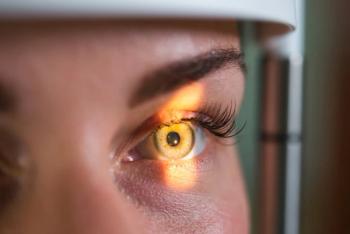
LASIK, PRK still elective procedures
The standard of care for laser vision correction is constantly evolving.
Atlanta-The standard of care for laser vision correction is constantly evolving, dictated by experience and technological advancements. While these advances have allowed many more individuals to be eligible for refractive procedures, clinicians need to keep in mind that LASIK and PRK are still elective procedures, said David Lampariello, OD, FAAO, here at the annual SECO meeting.
Comprehensive preoperative testing and questioning may suggest that an individual is not a good candidate for surgery, or that surgery should be postponed until a risk factor is addressed, said Dr. Lampariello, who is associate professor, New England College of Optometry, Boston, and clinical director of the optometry department at the Fenway Community Health Center in Boston.
Physicians have the right to refuse to recommend or perform surgery, regardless of how determined the candidate may be to undergo vision correction, he added.
"There is a discrepancy between what the lasers can do and what they do well," he said, explaining that most surgeons will not perform procedures at the upper and lower extremes of the FDA-approved parameters because the risk of a poor outcome is much higher.
Currently, most practitioners choose not to do laser surgery on patients with more than –8 D of myopia, preferring to use other options with lower risk and better outcomes.
In general, custom LASIK is the best method of correction for most patients, offering a safe, quick recovery, and excellent vision, he said. It also decreases the risk of glare and halo and regression and has a wider correction zone.
Custom PRK, though, may be a better alternative for patients with corneas < 500 µm, inferior steepening on Pentacam imaging, dry eyes, and for those who serve in the military or actively participate in contact sports, he noted.
Newsletter
Want more insights like this? Subscribe to Optometry Times and get clinical pearls and practice tips delivered straight to your inbox.








































